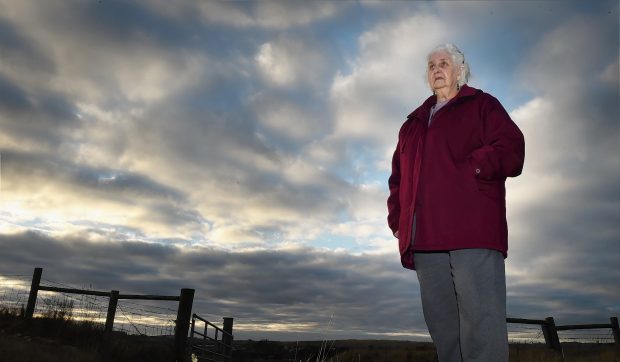Fresh plans to create a treatment plant and pipeline on the outskirts of Aberdeen have been tabled.
FCC Environment has applied for permission to create a leachate plant on the Tarbothill site, located around a mile north of Bridge of Don.
The firm was first granted consent for the plant last year, but has now submitted a revised proposal with an amended layout.
But pensioner Edna Booth – who has previously campaigned to block a substation linked to the controversial Aberdeen Bay offshore windfarm being built in her village of Blackdog – is gearing up to fight the plans.
The 82-year-old and her fellow residents have previously claimed Blackdog has been used as a “dumping ground” for years, and now she has concerns the Tarbothill plans could have an impact on the village.
Mrs Booth said: “To start with the site is on greenbelt land, and all of the greenbelt land around here has been eaten up by various industrial projects.
“It involves leachate and with this there will be heavy metals and organic substances, which could end up being poured into the Blackdog Burn.
“There are also plans for a 296-metre (971ft) pipeline which may well corrode.
“I lived near the site when a landfill site was in operation for 14 years and saw everything that happened, it was an absolute hell hole.”
But last night a spokeswoman for FCC Environment assured residents their concerns were unfounded.
She added: “Planning for this plant was approved in October 2015, however we have amended the layout and so have re-submitted the application to cover the new layout, other than this the application remains as previously approved.
“At present, leachate is collected from Tarbothill Landfill and stored in tanks before being exported from site for treatment elsewhere, it is proposed that a Leachate Treatment Plant is built to treat the leachate on site before being discharged to surface water.”
Leachate is formed when water passes through waste in a landfill site.
The Tarbbothill site currently uses a drainage system which pumps this into a holding tank, which transports it to a site in Glasgow.
By building the new plant, planning company Caulmert say the number of journeys will be reduced from about 730 to about 200.
